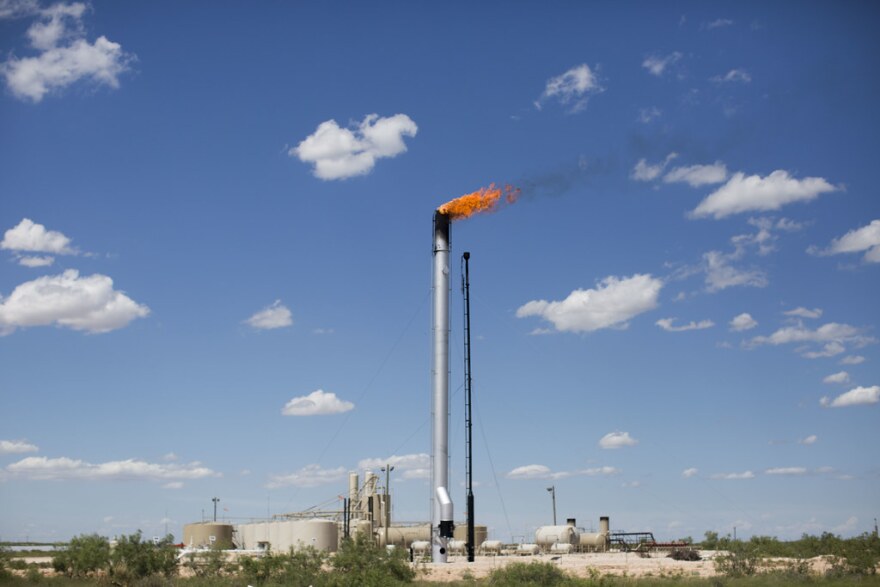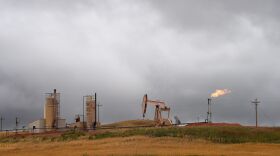In Washington, D.C., on Thursday, the Environmental Protection Agency announced plans for a major rollback of rules aimed at reducing methane emissions from oil and gas infrastructure. In Texas, environmentalists and even some in the industry are arguing in favor of keeping the rules.
Methane is a potent greenhouse gas. By some estimates, it's 80 times more harmful to the climate than carbon dioxide, though it doesn't stay in the atmosphere as long.
The Obama-era regulations require industry to install technology to plug methane leaks from oil and gas wells, pipelines, storage tanks and other infrastructure.
Some oil and gas operators – especially smaller, independent companies – said the rules cost too to follow. But others in the industry have come out in favor of the mandate, pointing out that methane is a natural gas, a commodity they say should not be wasted.
“There is a minimal cost of doing business in the fossil fuel industry,” John Hofmeister, the former president of Shell Oil, said. “If you can’t bare that cost because your business model requires you to emit [methane], then there’s something wrong with your business model and you shouldn’t be doing business.”
The EPA said the rule change could result in 370,000 more tons of methane being released between 2019 and 2025. Critics say the impact will be far greater.
Critics also questioned the administration’s assertion that industry will voluntarily self-regulate in the absence of the mandate. They point out that methane is often an unwanted byproduct of oil production.
In some places, companies will pay to have the gas transported away. They also commonly set it on fire in a process called flaring to save operators the cost of capturing it. It’s been estimated that enough methane is flared off in Texas to power every home in the state.
“The voluntary [self-regulation] argument falls flat just by looking out at western Texas with the sky on fire from flares,” says Colin Leyden, who works on regulation for the Environmental Defense Fund in Texas.
Leyden says the rollback would have an outsized effect not only on methane, but also on other emissions here because Texas already has weak emissions rules.
“The existing Texas regulations, which is what we’ll be left with, only cover a small percentage of all the oil and gas wells in the state," he said, "and it doesn’t apply to equipment that we know is prone to leakage."
The EPA's announcement will be followed by a period of public comment, government review and, likely, lawsuits before any final rule goes into effect.






